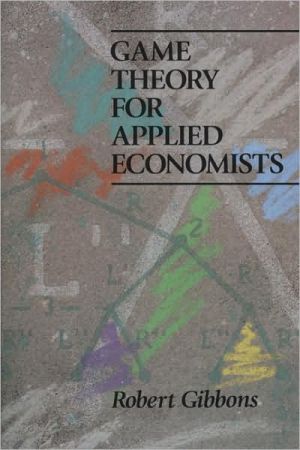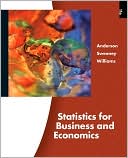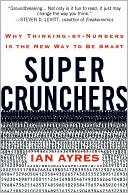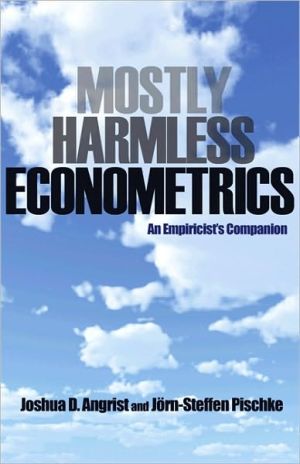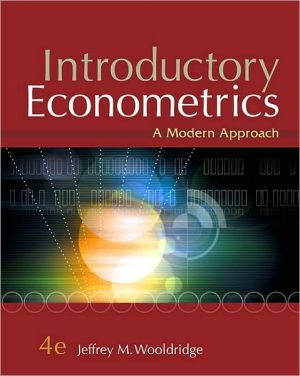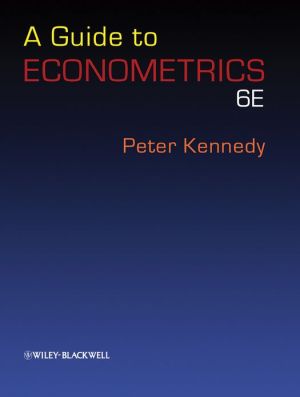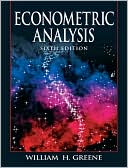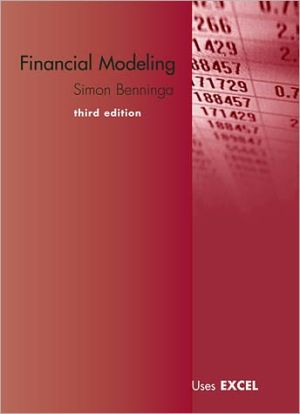Game Theory for Applied Economists
This book introduces one of the most powerful tools of modern economics to a wide audience: those who will later construct or consume game-theoretic models. Robert Gibbons addresses scholars in applied fields within economics who want a serious and thorough discussion of game theory but who may have found other works overly abstract. Gibbons emphasizes the economic applications of the theory at least as much as the pure theory itself; formal arguments about abstract games play a minor role....
Search in google:
This book introduces one of the most powerful tools of modern economics to a wide audience: those who will later construct or consume game-theoretic models. Robert Gibbons addresses scholars in applied fields within economics who want a serious and thorough discussion of game theory but who may have found other works overly abstract. Gibbons emphasizes the economic applications of the theory at least as much as the pure theory itself; formal arguments about abstract games play a minor role. The applications illustrate the process of model building--of translating an informal description of a multi-person decision situation into a formal game-theoretic problem to be analyzed. Also, the variety of applications shows that similar issues arise in different areas of economics, and that the same game-theoretic tools can be applied in each setting. In order to emphasize the broad potential scope of the theory, conventional applications from industrial organization have been largely replaced by applications from labor, macro, and other applied fields in economics. The book covers four classes of games, and four corresponding notions of equilibrium: static games of complete information and Nash equilibrium, dynamic games of complete information and subgame-perfect Nash equilibrium, static games of incomplete information and Bayesian Nash equilibrium, and dynamic games of incomplete information and perfect Bayesian equilibrium. Cooperative Economic News Service Lucid and detailed introduction to game theory in an explicitly economic context.
1Static Games of Complete Information11.1Basic Theory: Narmal-Form Games and Nash Equilibrium21.1.ANormal-Form Representation of Games21.1.BIterated Elimination of Strictly Dominated Strategies41.1.CMotivation and Definition of Nash Equilibriuin81.2Applications141.2.ACournot Model of Duopoly141.2.BBertrand Model of Duopoly211.2.CFinal-Offer Arbitration221.2.DThe Problem of the Commons271.3Advanced Theory: Mixed Strategies and Existence of Equilibriutn291.3.AMixed Strategies291.3.BExistence of Nash Equilibrium332Dynamic Games of Complete Information552.1Dynamic Games of Complete and Perfect Information572.1.ATheory: Backwards Induction572.1.BStackelberg Model of Duopoly612.1.CWages and Employment in a Unionized Firm642.1.DSequential Bargaining682.2Two-Stage Games of Complete but Imperfect Information712.2.ATheory: Subgame Perfection712.2.BBank Runs732.2.CTariffs and Imperfect International Competition752.2.DTournaments792.3Repeated Games822.3.ATheory: Two-Stage Repeated Games822.3.BTheory: Infinitely Repeated Games882.3.CCollusion between Cournot Duopolists1022.3.DEfficiency Wages1072.3.ETime-Consistent Monetary Policy1122.4Dynamic Games of Complete but Imperfect Information1152.4.AExtensive-Form Representation of Games1152.4.BSubgame-Perfect Nash Equilibriuin1223Static Games of Incomplete Information1433.1Theory: Static Bayesian Ganies and Bayesian Nash Equilibrium1443.1.AAn Example: Cournot Competition under Asymmetric Information1443.1.BNormal-Form Representation of Static Bayesian Games1463.1.CDefinition of Bayesian Nash Equilibrium1493.2Applications1523.2.AMixed Strategies Revisited1523.2.BAn Auction1553.2.CA Double Auction1583.3The Revelation Principle1644Dynamic Games of Incomplete Information1734.1Introduction to Perfect Bayesian Equilibrium1754.2Signaling Games1834.2.APerfect Bayesian Equilibrium in Signaling Games1834.2.BJob-Market Signaling1904.2.CCorporate Investment and Capital Structure2054.2.DMonetary Policy2084.3Other Applications of Perfect Bayesian Equilibrium2104.3.ACheap-Talk Games2104.3.BSequential Bargaining under Asymmetric Information2184.3.CReputation in the Finitely Repeated Prisoners' Dilemnia2244.4Refinements of Perfect Bayesian Equilibrium233Index257
\ Cooperative Economic News ServiceLucid and detailed introduction to game theory in an explicitly economic context.\ \
